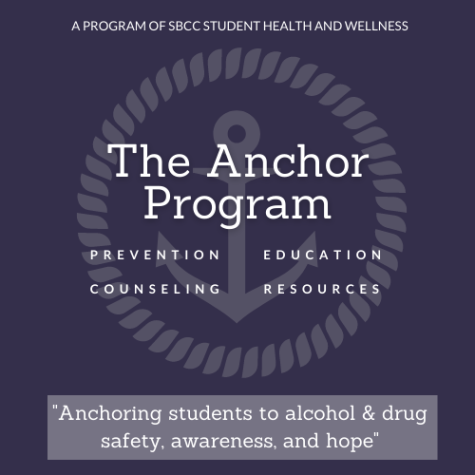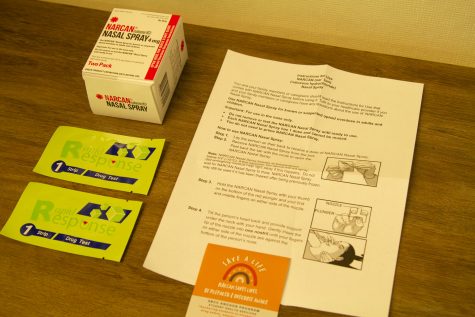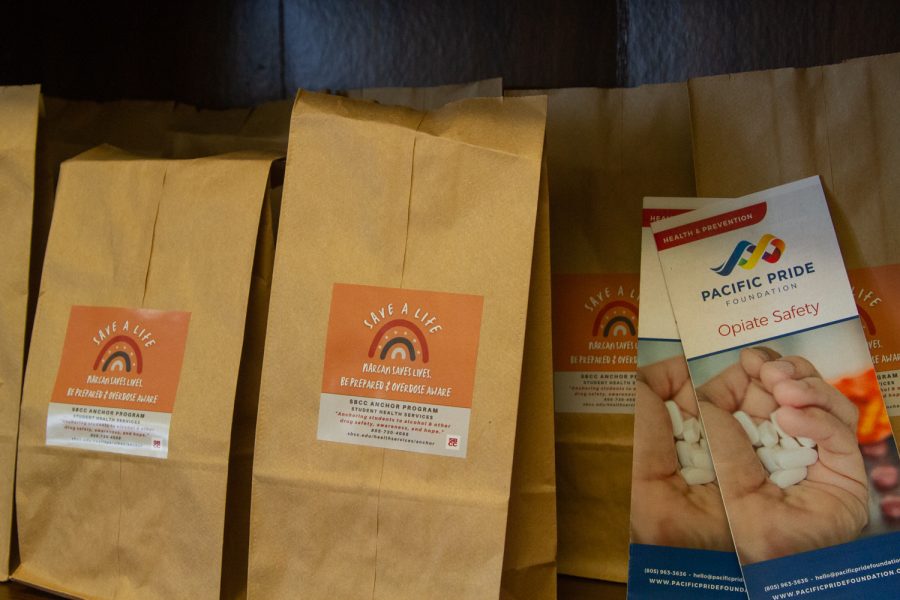Bundled in a small, handheld paper bag, are resources that can save a life.
With rising concerns over the last few years, City College has prioritized drug safety and prevention amid the opioid crisis in the United States. Partnering with a multitude of organizations around Santa Barbara, City College offers counseling, educational courses, and safety prevention kits that can be used in the event of an opioid overdose.
“Unfortunately we live in a world where there are a lot of unsafe things going on and it’s scary,” Anchor Program Coordinator Lacey Peters said. “We need to be able to vocalize how scary that is.”
According to the Centers for Disease Control and Prevention, “Overdoses involving opioids killed nearly 69,000 people in 2020, and over 82% of those deaths involved synthetic opioids,” while deaths have increased by 8% nationally in the last two decades.
Fentanyl is a synthetic opioid that is commonly used in clinical settings known to be at least 80 times more potent than morphine and 50 times more potent than heroin. Fentanyl is one of the leading contributors to the current overdose crisis in the U.S., along with a lack of resources and the criminalization of drug use, according to the National Harm Reduction Coalition.
Santa Barbara is the home of many college students, and it is greatly affected by this issue. In Santa Barbara County, accidental overdose deaths among ages 15-24 have more than doubled in 2021 from the previous year. Additionally, there have been 101 overdose deaths in 2021 involving opioids with Fentanyl involved in 74% of these deaths according to the Santa Barbara County Coroner.
City College is a part of the Opioid Safety Coalition in Santa Barbara County which provides the community resources, information and awareness. Through this coalition, students have unlimited access to what is offered. Onsite counselors are also available on campus to provide a safe and confidential space.
“At the root of all addictions, there is a basic understanding that there is an unmet need,” Samantha Matern, coordinator of addiction disorders counseling department said.

Student Health Services drives a substance use program called the Anchor Program, aimed to give personal counseling, referrals, education and workshops to students.
“Our personal counseling department is really well equipped to help all students to process any type of incident that they may have experienced,” Peters said. “We want students to feel like they can come talk to us. It is highly stigmatized and it has to be destigmatized.”
Over the last couple of years, City College has partnered with Pacific Pride Foundation and Narcan Distribution Project to distribute safety and prevention kits to students. These kits include naloxone (Narcan) and opioid testing strips. These are available on campus, at tables in Isla Vista and at Cottage Hospital free of cost.

In 2019, Naloxone became available for distribution on campus. Naloxone is a recognized opioid overdose reversal medication, commonly sold under the brand names Narcan and Evzio according to harmreduction.org. During the pandemic, student reach was difficult, but this past year, the Anchor Program has been pushing for more distribution and safety education to all students.
On Tuesday, Oct. 25, the Anchor Program is hosting an overdose prevention and response training available to anyone.
“This is something that we can help prevent and I feel very strongly that we can do our part,” Peters said. “I want students to feel prepared to save a life.”














